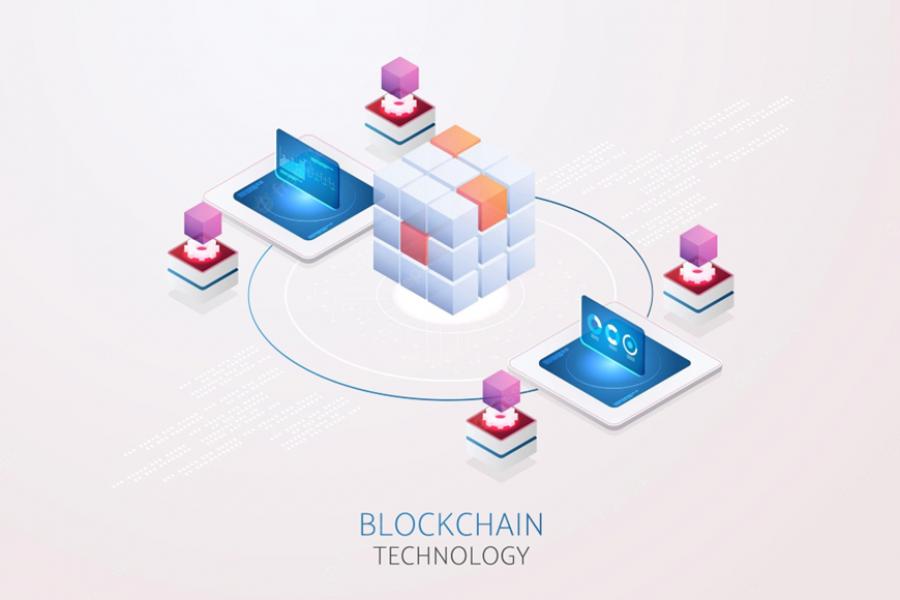How Blockchain Helps Supply Chain

In the modern world, few businesses can operate sustainably and profitably without managing an end-to-end supply chain. Whether you’re making clothes, cars or computers, coordinating all the moving parts is a Herculean task — especially when you factor in the constant threat of natural disaster, price volatility, and human error. Fortunately, blockchain technology offers companies new opportunities to streamline their supply chains. From reducing waste to increasing transparency, blockchain is helping businesses tackle many of today’s most pressing challenges in the supply chain space. Read on for a brief overview of how blockchain technology is helping supply chains around the world.
Eliminating Waste in the Supply Chain With Blockchain
Most modern supply chains — especially those in the food and beverage industry — generate a significant amount of waste. Whether it’s spoiled goods, unusable pallets or components that go missing during transport, companies lose billions each year due to inefficiencies. One way blockchain technology is helping to eliminate waste in the supply chain is by connecting companies along the chain to the same network. Through a single, integrated platform, suppliers are able to share data with their customers, streamline logistics, and improve overall efficiency. These systems also allow companies to create an immutable record of their supply chain, enabling them to identify inefficiencies and take action to minimize waste. When suppliers and customers are connected to the blockchain, they can trace the origin of materials, detect possible contamination, and avoid waste by rejecting subpar goods.
Increasing Transparency in Supply Chains With Blockchain
By its nature, blockchain technology offers a level of transparency that’s unprecedented in the business world. When parties are connected to the blockchain, they can view one another’s actions in real time, making it impossible to manipulate data or engage in fraudulent activities. And while blockchain is often associated with cryptocurrencies like Bitcoin, many supply chain stakeholders are using it to increase transparency between suppliers and customers. When parties are connected to the same blockchain network, they can share information about the goods being shipped, the units of measure, and shipping terms. For example, let’s say you work for a clothing manufacturer and an apparel retailer is buying your product. Through the blockchain, you can share data with your customer about the fabric, the cut, and the quantity of items the retailer is purchasing. In turn, the retailer can share data with you about their sales numbers and expected payment schedule.
Helping Build a Safer Food Supply Chain With Blockchain
Many food manufacturers and distributors leverage blockchain technology to create a safer supply chain. This is especially true of companies in the meat industry, which is frequently targeted by animal rights activists. Regardless of where the meat is sourced, blockchain can help retailers track it along the supply chain, verify its authenticity, and eliminate inefficiencies that could lead to contamination. Courtesy of blockchain technology, these stakeholders are also able to share data with one another, building a transparent, tamper-proof record of their activities along the way. When food items are tracked on the blockchain, they’re assigned a unique ID that can’t be altered or deleted. This means you can always trace the meat back to the farm where it was produced, keeping tabs on the journey it takes as it travels toward the supermarket shelves.
Securing Confidential Data in the Supply Chain With Blockchain
If you follow news on cryptocurrency and blockchain, you must have heard that Many businesses use blockchain technology to securely share data with suppliers, customers, and other stakeholders along the supply chain. But what happens when parties need to share sensitive information, such as pricing or product specifications, along the blockchain? This is where confidentiality comes in. While blockchain offers transparency, it also allows parties to encrypt their data, securing it with a private key. When parties are connected to the blockchain, they can share sensitive data with a level of security that’s impossible to achieve with other technologies. This is especially useful when data needs to be shared across multiple parties — such as a product recall. A product recall is an urgent situation that can be tricky to manage. To successfully recall a product, the manufacturer, distributor, and retailer all need to pull the product from their shelves. Unfortunately, when parties are operating on different technology platforms, it can be difficult to coordinate the recall. But when the manufacturer, distributor, and retailer are connected to the blockchain, they can share data securely and effectively manage a product recall.
Conclusion
As blockchain technology and cryptocurrency continues to evolve, all signs point to it becoming a foundational technology — like the internet itself. And while blockchain has many applications, its impact on supply chains is perhaps the most significant. When parties are connected to a blockchain network, they can easily trace the origin of materials, detect possible contamination, and eliminate inefficiencies throughout the supply chain. This is particularly true when manufacturers and distributors are connected to a single blockchain network. When these stakeholders are connected to the blockchain, they can share data with one another, build a more transparent supply chain, and even manage a product recall — all while securing confidential data with a private key.
More to Read:
Previous Posts:


